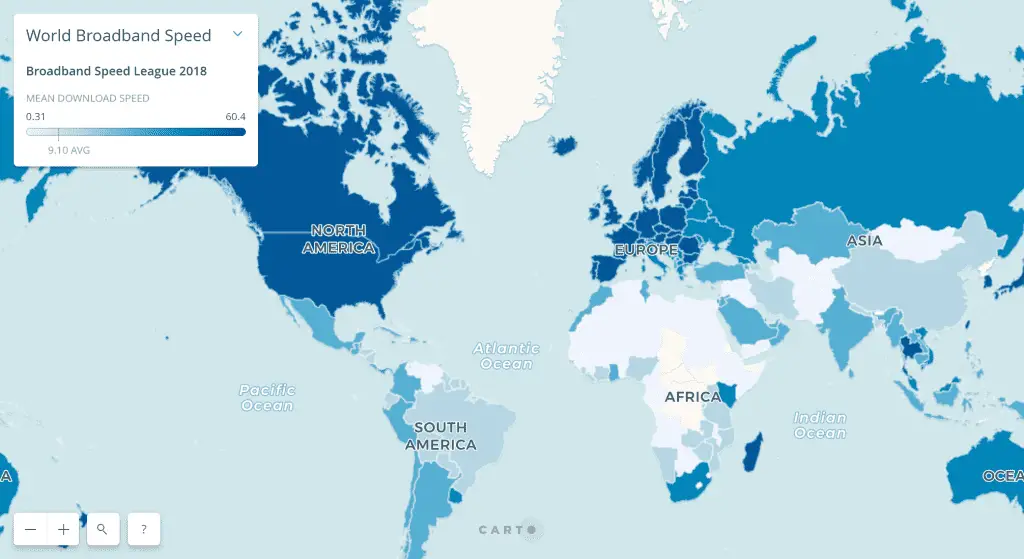M-Lab: average global broadband speed was 9.1 Mbps

Recently, the M-Lab Global Broadband Speed Alliance released a report of 163 million independent network speed test points worldwide from May 30, 2017, to May 29, 2018. According to the report, the global average network speed is 23% faster, reaching 9.1 Mbps than 7.4 Mbps last year.
M-Lab has tracked broadband speed measurements in 200 countries (189 countries last year) over the past 12 months, which allows us to understand the average speed of global broadband. The good news is that the global average speed is rise rapidly.

Singapore took the lead in 2017 and 2018, with an average download speed from 55Mbps to 60Mbps. Sweden’s second average speed is 46 Mbps, Denmark is third, and its average download speed has increased by 10 Mbps, from 33 Mbps to 43 Mbps. Norway ranked fourth with an average rate of 40.12 Mbps.
The global average grew by 23% year-on-year, but another data is surprising. The top 100 countries in the rankings grew by an average of 5.43 Mbps, while the last 100 only increased by 0.41 Mbps.
However, if you consider the percentage increase, this data can still be said. The average broadband speed in the top 100 countries increased by 29.04%. The average broadband speed in the 100 countries at the bottom of the ranking increased by 24.22%.
Of course, if you choose the top 25 and the bottom 25, the average speed of the top 25 is increased by 28.88%, while 7.40% only increases the last 25. Another statistical method shows that the top 25 countries accounted for 45.30% of the total growth, while the overall growth rate of the previous 25 states was almost negligible at 0.19%.
Cable consumer telecom analyst Dan Howdle said, “With average broadband speeds rising by 23% in just one year it would be easy to assume an overall positive global picture. However, a closer look reveals the acceleration is concentrated towards the top end: the faster countries are improving more quickly, with those towards the bottom end of the table verging on stagnation.”
Since the UK has just begun to promote FTTP (Fiber to the Home), there are already many other European countries that are far ahead of the UK in this regard so that the UK may fall even more next year.
The forefront of the table is dominated by Europe, with 36 of the top 50 countries in Europe. Last year’s results made the UK ranked 31st in the world. This year, the UK ranked 35th.
Europe, the United States, and the Asia-Pacific region (Singapore, Japan, Taiwan, and Hong Kong) are thriving economic centres that are world leaders in providing fast, reliable broadband, indicating a close relationship between broadband speed and the economy.





